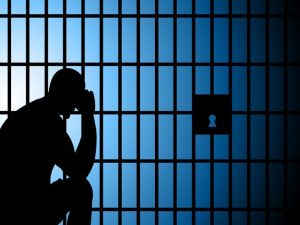California Penal Code 350 | Counterfeit Mark Charges
Selling, possessing for the purposes of sale, or manufacturing a counterfeit trademark is charged under California Penal Code 350 which makes it a crime to “willfully manufacture, intentionally sell, or knowingly possess for sale any counterfeit mark registered with the Secretary of State or registered on the Principal Register of the United States Patent and Trademark Office.” Goods normally associated with this charge include purses, wallets, belts, and clothing apparel from brands such as Gucci, Coach, Michael Kors, Prada, and Louis Vuitton. The evidence against you usually results in evidence gather from an undercover buy operation from a private investigation firm who works with multi-billion dollar retailers of the products.
Table of Contents
TYPICAL UNDERCOVER OPERATION
The initial investigation for possessing for sale, selling, or manufacturing a counterfeit mark normally begins with a private investigation firm (a Los Angeles based private investigation company) responding to an advertisement on craigslist, facebook, or other website acting as a prospective buyer. A controlled buy is set up where the firm usually pays approximately $200 for the merchandise and says that they’re interested in purchasing more products in a few more weeks. Little does the seller know, the entire interaction and purchase is secretly recorded via audio and video. The undercover investigator normally looks unassuming and it’s either two males or a single female. After the purchase, the investigation firm will write a report and submit their findings to local police in an effort to effectuate your arrest on the next scheduled buy. The private investigation firm will then reach out to you a second time to schedule another purchase. At the meeting, you are greeted by local police who are armed with a search warrant and arrest you for possessing counterfeit markings for sale under PC 350 with a bail amount set at $20,000.
WHAT IS THE GOVERNMENT REQUIRED TO PROVE?
To prove you’re guilty of PC 350(a) or (b), the government holds the burden of proving each of the below elements beyond a reasonable doubt:
- You possessed counterfeit goods;
- You had the intent to sell, or actually sold, or manufactured the counterfeit good(s);
- The items contained a seal registered with the United States Patent & Trademark Office.
WHAT ARE THE LEGAL DEFENSES TO COUNTERFEIT MARK CHARGES?
-
Defense: Lack of Possession
Proving you had “possession” of the items is an essential element for this offense. The government may prove this element under two theories: actual possession meaning the items were on your person or inside your vehicle, or constructive possession meaning you had the right to exercise dominion and control over the items. This is especially arguable when two people are alleged to be in possession over the same goods. Because the law on constructive possession is so imprecisely defined, it opens the door for your attorney to argue that you lacked possession.
-
Defense: Mere Presence
Mere presence at the scene of the crime and intimate knowledge of the offenses simply make a person an eyewitness and do not, without more, permit a conviction of the person as an aider and abettor of the crime. This means that if you were merely present with counterfeit items in your direct presence, without anything more, then you cannot be convicted of this crime – i.e., mere presence alone is not enough. For instance, you were at your friends home when police enter and find a container full of counterfeit items on the front room table. Since there’s no additional evidence connecting you to that items (assuming you make no admission and your finger prints are not lifted from the goods) then you’re not guilty of this offense. This rational even includes the fact that you knew of the illegal presence of the counterfeit marks.
-
Defense: Lack of Intent to Sell
Similar to drug sales, the government proves directly or circumstantially that you possessed the items with the intent to sell based on a number of factors including:
- Obtaining a copy of your internet advertisement
- Text message exchanges / phone call recordings
- Offering the items substantially lower than the fair market value
- Large sums of money consistent with street sales
- Your incriminating statements / admission to police
- The quantity is beyond personal collection
However, you could be possessing all or some of the items as personal fashion apparel. Arguably, if you were intending to sell one item out of many, then you sales charge will be confined to that which you intended to sell whereas the remaining items were your personal items. Although the government will argue otherwise, it may help limiting your exposure. But if none of the above factors are applicable to your case, then government holds a more difficult burden when proving what your intent was.
-
Items Authenticity
One essential element under this offense is that the items were counterfeit, requiring the examination of a counterfeit goods expert. Normally the expert is from the same investigating agency which orchestrated the undercover buy leading to your arrest. When police detain you pending their investigation, they summon a counterfeit goods expert to examine the items to show that they are in fact counterfeit. Once the expert concludes this fact, police formally arrest you. However, in some instances, goods are so well manufactured that sometimes even the expert cannot tell the difference. In that case, that could help tremendously since if an expert cannot tell the difference between legitimate versus counterfeit items, then how a reasonable person, such as yourself could, know the distinction.
-
No Seal Registered with the US Patent Office
If the items do not contain a seal or insignia, then the items are not considered counterfeit. Additionally, the items could contain a seal but slightly different from a seal registered with the US Patent Office. In that instance, you cannot be convicted of this offense because you are not in possession of an item that is counterfeit. The raises the importance for your attorney to obtain an order to examine the items in police custody. The rational is that many people or entity can compete with each other selling products in a competitive business market even if the items are substantially similar and do not contain a replica seal.
-
Illegal Search or Seizure
It’s important to examine the scope of the private investigating agency (non-law enforcement) to determine what they’re understanding is with police. If they’re acting in conjunction with law enforcement then you’re entitled to the same rights as if they’re law enforcement. Furthermore, if police obtained a warrant to search your home, car, or person, then the search warrant must be carefully examined to determine there existed sufficient probable cause to issue it in the first place or perhaps whether there are intentional misrepresentations. All search and seizures issues are codified under the Fourth Amendment of the U.S. Constitution. If a violation of this amendment occurred, your attorney will file a motion to suppress the items garnered as a result of the illegal search. If the court determines an unreasonable search occurred, then the judge will order the items suppressed and the government will unlikely to proceed with their case against you.
-
Miranda Violation
Some of the most damaging evidence against you is your incriminating statements made to police. The government generally uses these admissions to prove you’re possessed the items for sale or to establish another element of this offense. A popular misconception is that if police do not admonish you of your Miranda Rights, the case will be dismissed. Contrary to this belief, police are only required to read you your rights if you were subjected to custodian interrogation. However, in the event you were not read your rights and subjected to custodial interrogation, then you may have a viable claim of suppressing your statements. In that event, if the judge orders your statements suppressed, then perhaps the government cannot prove one of the elements. Therefore, the case will be dismissed. However, a Miranda violation does not always result in a case dismissal but does make the government’s case against you more burdensome.
PUNISHMENT & SENTENCING

Depending on the circumstances and largely upon the size of the operation, counterfeit mark charges can be charged as a misdemeanor or felony. Under PC 350(a)(1), if the total number of articles is less than 1,000, then the government will charge you with a misdemeanor. A misdemeanor carries a 1 year jail sentence and a fine up to $10,000.
However, under PC 350(a)(2), if the total number of articles is 1,000 or more, or if you were previously convicted of this offense (see PC 350(b)), then charge becomes a wobbler where the government holds discretion to charge you with a misdemeanor or felony. A misdemeanor conviction carries the same punish described above. A felony conviction carries a sentencing range of 16 months, 2, or 3 years in county jail and a fine not exceeding $10,000. In the event you’re granted probation, your probation period is usually three years with conditions to complete community service, community labor, or theft counseling.
A problem arises when the investigation company attempts to claim restitution seeking that you pay for their investigation effort(s). This number is usually in excess of $6,000. Your attorney should gather all employee hours, receipts, and any other documents to show that the company is grossly exaggerating the investigation costs. Furthermore, the investigation company claims to work for billion dollar companies which makes no sense for them to work contingently upon getting restitution from suspects.
CONTACT US FOR A FREE CRIMINAL DEFENSE CONSULTATION

If you’ve been arrested, charged, or are under investigation for PC 350, contact a Counterfeit Goods Defense Lawyer at the Law Offices of John D. Rogers for a free confidential consultation concerning your rights and defenses.






